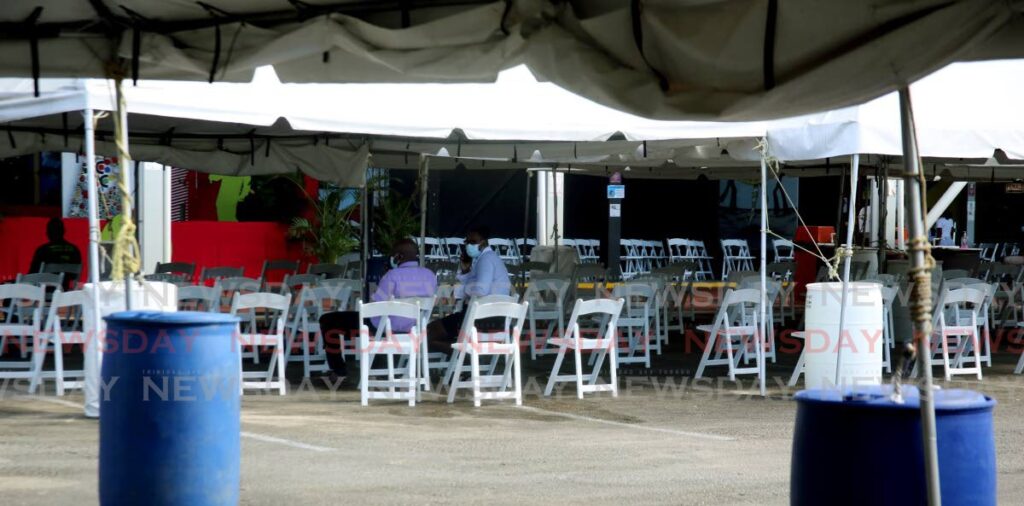Hinds: Decline in covid19 deaths, not a trend yet

Epidemiologist Dr Avery Hinds said even though there has been a recent decrease in covid19 deaths, health officials are not projecting a continued downward trend.
Speaking at Saturday’s virtual covid19 update he said health officials were "happy" to see a decrease in deaths. He added that, while the omicron variant was not yet the dominant strain in TT, he expected it to be soon.
“Because that strain, that variant (omicron), seems to have what they call lower virulence, there may be milder illness in the population as a result. This is not a definitive, but it is the most likely reason at this point in time for seeing the trend we are seeing (less deaths). But the best way to establish and to improve that downward trend will be to increase the levels of vaccination in the population.”
He said there was a 33 per cent increase in the number of new cases between weeks two and three of January, but expects around 1,000 fewer in week four.
“What we are seeing though, is that the numbers we are seeing in the hospitals haven’t been rising rapidly, and in some cases we are seeing the numbers have been going down somewhat. But we do have to bear in mind the background circulation of more virus. So even if there is a lower virulence and a lower rate of hospitalisation, the fact that there may actually be more cases counterbalances that.”
Addressing the issue of quarantine, he said even though a person may test negative, they still have to complete the 14 days in isolation.
“Quarantine is the period during which they observe you after you’ve been exposed to a positive person. So you may not be a positive but you’ve been exposed to a positive person and within a 14-day time span, you can become positive. So if we test you and you’re negative inside of that timeframe, it doesn’t mean that you may not become positive the next day or the day after that.”
Also at the press conference was Dr Ravi Lala, medical director at the North Central Regional Health Authority (NCRHA).
He said the RHA had a long covid or executive wellness clinic at the Arima General Hospital. Since its inception in October 2020 it had over 500 appointments with 183 new patients and 343 revisits.
He explained long-covid occurred when a person who had covid19 experienced certain symptoms that cannot be explained by any other illness three months after the onset of the virus. The symptoms last at least two months.
If a person had a mild case of covid19, their long-covid symptoms may include shortness of breath, fatigue, difficulty concentrating and post-exertional malaise which is the worsening of symptoms after even minor physical or mental exertion.
Those who had severe disease may experience multi-organ effects on the heart, lung, kidney, brain, skin as well as inflamation and tissue damage.
“Our long covid clinic really was conceptualised as a one-stop solution where patients could come within one day, get a wide range of services, and leave as a complete care package.”
It addressed physiotherapy, pulmonary, renal and cardiac disease, as well as psychiatric and social issues. Specialists also included a dietician and pharmacist.
Patients have to be referred to the clinic by doctors in the public health system dealing with covid19 patients. Admission forms have also been distributed through the RHAs so staff could refer patients, and people could email the clinic at execwellness.agh@ncrha.co.tt to ask questions.
After admission, patients receive pre-clinic screening over the phone.
“We would be looking to see if the patient has any special needs that we have to consider as well as any special concerns we need to focus on in that phone call. We also decide where (in which circuit) we are going to place our patients.”
Patients would then be placed in the morning circuit where they get a variety of tests needed to direct the specialists, or the evening circuit where patients would visit members of the multi-disciplinary team of specialists.
At the end of six or seven hours, the pharmacist would look through all the prescriptions for drug interactions and the team, as a whole, would address any issues.


Comments
"Hinds: Decline in covid19 deaths, not a trend yet"